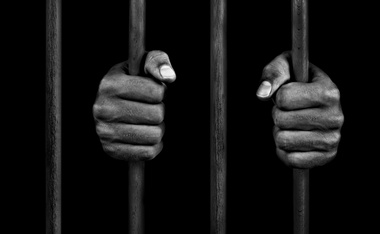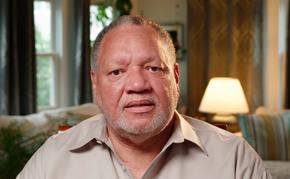The views expressed in our content reflect individual perspectives and do not represent the authoritative views of the Baha'i Faith.
For hundreds of years in the United States, people of African descent were trafficked and enslaved as they were violently forced to perform free labor and have children that would be born into enslavement.
Before President Abraham Lincoln issued the Emancipation Proclamation in 1863, Baha’u’llah, the prophet and founder of the Baha’i Faith, outlawed slavery more than two decades earlier. He wrote:
All kings are as vassals before the gate of Thy grace, the rich are but destitute at the shore of Thy sacred dominion, and all great ones are but feeble creatures within the court of Thy glorious bounty. How, then, can this thrall claim for himself ownership of any other human being? Nay, his very existence before the court of Thy might is a sin with which no other sin in Thy kingdom can compare.
With the ratification of the 13th Amendment in 1865, slavery was abolished in the United States. But, there was a catch.
Modern-day Slavery in the Prison System
Although chattel slavery was abolished, the 13th Amendment stated that slavery and involuntary servitude were allowed “as a punishment for crime.” Mass incarceration then became a goal and a business.
As explained by Tufts University Prison Divestment, “The U.S. has the world’s highest incarceration rate and, despite representing under 5% of the global population, the U.S. holds almost 20% of the global prison population.”
And, due to systemic racism, people of color are incarcerated at disproportionately higher rates. For example, although “people of all races use and sell illegal drugs at remarkably similar rates…Black men have been admitted to state prison on drug charges at a rate that is more than thirteen times higher than white men.”
Thankfully, Rhode Island, Utah, Colorado, Nebraska, and recently Vermont, Oregon, Alabama, and Tennessee, have explicitly forbidden slavery and involuntary servitude in their state constitutions. However, North Dakota, Minnesota, Wisconsin, Iowa, Nevada, California, Kansas, Arkansas, Missouri, Kentucky, Indiana, Michigan, Ohio, North Carolina, Georgia, and Louisiana all still explicitly allow slavery in their state constitutions. In fact, 61 percent of voters in Louisiana voted to keep slavery and involuntary servitude in their state constitution in November 2022.
In 1938, Shoghi Effendi, the Guardian of the Baha’i Faith, highlighted the necessity of having “A rectitude of conduct, an abiding sense of undeviating justice, unobscured by the demoralizing influences which a corruption-ridden political life so strikingly manifests.”
This corruption and injustice of our nation’s justice system has also led to the wrongful convictions of tens of thousands of innocent people.
An Example of How Slavery Operates in a Louisiana Prison
As Baha’u’llah wrote:
The winds of despair are, alas, blowing from every direction, and the strife that divideth and afflicteth the human race is daily increasing. The signs of impending convulsions and chaos can now be discerned, inasmuch as the prevailing order appeareth to be lamentably defective.
After chattel slavery was abolished, Jim Crow laws — laws that limited the freedoms and rights of newly emancipated enslaved people — were almost immediately instituted.
“As punishment for violating these laws — also called the Black Codes — Black men, women, and children would be sent to prison and were frequently ‘leased out’ as labor to private businesses, including plantations and mines, under a system known as ‘convict leasing,’” explained the Innocence Project.
“The system incentivized the mass incarceration of Black people to create a supply of cheap, if not altogether free, prison labor to replace the slave labor upon which the plantations and other industries had previously relied.”
For example, Louisiana’s Angola plantation relied on this free labor. When the convict leasing system was banned, the state of Louisiana purchased the plantation, established the Louisiana State Penitentiary, and took “control over the prisoners previously leased to the plantation.”
The Innocence Project stated, “People incarcerated at Angola are paid a few cents an hour to work the same fields, picking cotton, corn, and more, from the same land slaves were forced to work 200 years ago. Some incarcerated people are even tasked with fishing, cooking, and doing repair work for the ‘free men’ — as people imprisoned at Angola call the prison staff. Angola is, essentially, a place where slavery never ended.”
And 75 percent of people incarcerated at this prison are Black.
Calvin Duncan, a Black man who was wrongly incarcerated and spent 28.5 years at Angola for a murder he didn’t commit, said, “They take us from our land, our country, which, in this case, is New Orleans, and they put us on a boat — only now, that boat is a bus, and they ship us to jail, until we go to the auction block.” He referred to the criminal district court as the “auction block.”
And, they’re forced to work in every weather condition. Malcolm Alexander, another Black man who was sentenced to 38 years in prison for a crime he didn’t commit, recalled, “I done seen where a horse fell out from the heat, I done seen when a prison guard have to get off the horse to get in the shade of the horse, I done seen other prisoners fell out from heat exhaustion.”
He added, “It was like you see in old pictures of slavery. We even had a quota we had to meet at the end of the day.”
For this International Day for the Abolition of Slavery, let’s call to mind the words of Baha’u’llah:
The best beloved of all things in My sight is Justice; turn not away therefrom if thou desirest Me, and neglect it not that I may confide in thee. By its aid thou shalt see with thine own eyes and not through the eyes of others, and shalt know of thine own knowledge and not through the knowledge of thy neighbor.
Ponder this in thy heart; how it behooveth thee to be. Verily justice is My gift to thee and the sign of My loving-kindness. Set it then before thine eyes.
















Comments
Sign in or create an account
Continue with Googleor